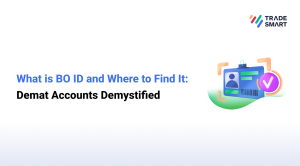
India is the second-largest importer of gold in the world with imports running into nearly 800-900 tonnes per annum. The annual import bill of the government with respect to gold was $28.2 billion in 2019-20. Since gold imports affect the current account deficit of the country and thus the value of the rupee vis-a-vis other currencies, the government decided on a novel idea to reduce the dependence on gold imports.
In India, gold has traditionally been used as an instrument of saving along with its use in jewellery for marriages and festive occasions. Over the last few decades, gold coins and bricks are being used as a saving medium. In general most of the gold that is imported in the country was rarely put to use on a regular basis.
In order to take advantage of this habit, the government came out with a novel scheme that would incentivise gold saving as well as prevent the import of gold. The government decided to launch a Sovereign Gold Bond scheme where instead of purchasing gold in physical form one can do so in electronic form, just like shares.
Let’s get to know what the Sovereign Gold Bonds and how one can take advantage of it.
What is the Gold Bond Scheme?
Sovereign Gold Bonds, hereafter referred to as SGB, are government securities denominated in grams of gold. The Bond is issued by the Reserve Bank of India on behalf of the Government of India. Investors have to pay the issue price in cash and the bonds will be redeemed in cash on maturity. These bonds act as a proxy for holding physical gold.
Why are SGB called Bonds?
SGB’s are just like any other bonds as the bearer of the instrument is entitled to interest payment. The Bonds bear interest at the rate of 2.50 per cent per annum on the amount of initial investment. This interest will be credited semi-annually to the bank account of the investor and the last final interest will be payable on maturity along with the principal. The tenure of each SGB is for eight years.
What are the advantages of SGB over physical gold?
-
- The SGB offers a superior alternative to holding gold in physical form.
- The risks and costs of storage are eliminated.
- The bonds are held in the books of the RBI or in Demat form eliminating the risk of loss of scrip, etc.
- The quantity of gold for which the investor pays is protected since he receives the ongoing market price at the time of redemption or premature redemption.
- SGB is free from issues like making charges and purity in the case of gold in jewellery form.
- The buyer gets paid interest on the money invested, which is not possible when holding physical gold.
- These bonds carry a sovereign guarantee since they are issued by the government.
- There is no capital gains tax at the time of maturity or redemption for individual investors. Also, there is indexation benefit is the same is transferred before maturity for non-individual investors.
- The SGB can be used as collateral.
At what price is the SGBs sold?
The nominal value of SGB will be fixed on the basis of simple average of the closing price of gold of 999 purity, published by the India Bullion and Jewelers Association Ltd, for the last 3 business days of the week preceding the subscription period. The price of gold for the relevant tranche will be published on RBI website two days before the issue opens.
What will I get on redemption?
The SGBs can be redeemed in Indian Rupees at the time of redemption and the redemption price shall be based on the simple average of the closing price of gold of 999 purity of previous 3 business days from the date of repayment, published by the India Bullion and Jewelers Association Ltd. Both the interest and redemption proceeds will be credited to the bank account furnished by the customer at the time of buying the bond. The investor will be advised one month before maturity regarding the ensuing maturity of the bond.
Is premature redemption allowed?
While the tenor of the bond is 8 years, early redemption or encashment is allowed after the fifth year from the date of issue on coupon payment dates. The bond will be tradable on exchanges if held in Demat form. They can also be transferred to any other eligible investor.
In case of premature redemption, the investor will have to contact the concerned bank/SHCIL/post office/agent thirty days before the coupon payment date. Request for premature redemption can only be entertained if the investor approaches the concerned bank/post office at least one day before the coupon payment date.
The proceeds will be credited to the customer’s bank account provided at the time of applying for the SGB. The SGB investor also has the option of selling the bonds prematurely anytime on stock exchanges. Such sales would attract capital gains tax at the same rate as for physical gold.
How can one invest in SGB?
To subscribe for the bonds or to do online trading of bonds, please contact our dealing desk at 022-61208000 Extn:3. There shall be no charge for placing the order. Please refer to this link to get the RBI’s issue dates.
Who all are eligible to invest in SGB?
A resident Indian as defined under the Foreign Exchange Management Act (FEMA), 1999 is eligible to invest in SGB. The set of eligible investors include individuals, HUFs, Trusts, Universities and charitable institutions. Joint holding and minors are also eligible to invest in SGB. If an individual investor changes his residential status from resident Indian to non-resident he may continue to hold SGB till early redemption/maturity.
Are there any risks in investing in SGBs?
Here is where the SGB differs from a vanilla Bond. The risk of capital loss if the market price of gold falls is always there. It needs to be pointed out that the unit of gold remains the same irrespective of the price.
Is there a minimum and maximum limit of investment for SGB?
Yes, the SGB are issued in denominations of one gram of gold and multiples thereof. The minimum investment in the Bond shall be one gram with a maximum limit of subscription of 4 kg for individuals, 4 kg for Hindu Undivided Family (HUF) and 20 kg for trusts and similar entities notified by the government.
Each member of the family can buy 4 kg of SGB in her or her name. In case of joint holding, the limit applies to the first applicant. The annual ceiling will include bonds subscribed under different tranches during initial issuance by the government and those purchased from the secondary market. The ceiling on investment will not include the holdings as collateral by banks and other financial institutions.
Can an investor hold more than one investor ID?
No investor will be allowed to hold more than one investor ID, which will be linked to any of the prescribed identification documents mentioned in the Know Your Customer (KYC) norms. The KYC norms are the same as that for purchase of physical form of gold such as Aadhar Card, PAN or TAN Card, Passport, or Voter ID Card.
Can one gift SGBs?
The bond can be gifted or transferred to anybody who is a resident Indian and fulfils the eligibility criteria set by the government. The Bonds shall be transferable in accordance with the provisions of the Government Securities Act, 2006 and the Government Securities Regulations, 2007 before maturity by the execution of an instrument of transfer which is available with the issuing agents.
Can the SGBs be used as collateral for loans?
Yes, the SGBs are eligible as collateral for loans from banks, financial institutions and Non-Banking Financial Companies (NBFC). The Loan to Value ratio will be the same as applicable to ordinary gold loans prescribed by RBI. However, granting loan against SGBs would be the subject decision of the bank/financing agency, and cannot be inferred as a matter of right.
What are the tax implications of investing in SGBs on both – interest and capital gains?
Interest on the Bonds will be taxable as per the provisions of the Income-tax Act, 1961. The capital gains tax arising on redemption of SGB to an individual has been exempted. The indexation benefits will be provided to long terms capital gains arising to any person on transfer of SGB.
What are the payment options?
Payment can be made in cash up to Rs 20,000 or cheques, demand drafts or electronic fund transfer.
Is the nomination facility available on SGBs?
Yes, nomination facility is available as per the government rules. A nomination form is available along with the application form. A non-resident Indian may get the security transferred in his name on account of his being a nominee of a deceased investor provided that the non-resident investor shall need to hold the security till early redemption or till maturity and the interest and maturity proceeds of the investment shall not be repatriable.
What is the procedure to be followed in the eventuality of the death of an investor?
The nominee/nominees to the bond may approach the respective Receiving office with their claim. In the absence of nomination, the claim of the executors or administrators of the deceased holder or claim of the holder of the succession certificate may be submitted to the Receiving Offices/Depository. The above provisions are applicable in the case of a deceased minor investor also.
In nutshell, Gold Sovereign Bond or SGB is the new-age investment for people who are interested in the gold sector.












